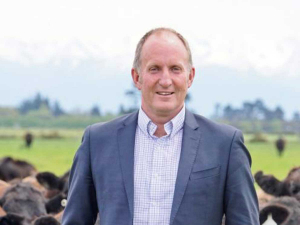OPINION: The recent New Zealand-United Kingdom free trade agreement (FTA) represents the cumulation of over five years of hard work by the New Zealand Government – supported by Beef + Lamb New Zealand (B+LNZ) and the Meat Industry Association (MIA).
It will deliver outcomes that will directly improve the profitability of New Zealand’s sheep and beef sector.
The red meat sector’s trade strategy seeks to ensure New Zealand red meat products have comprehensive access to the widest number of markets possible. Underpinned by FTAs, commercial relationships across diverse markets allow exporters to seek the best returns by targeting different markets for different products at the most opportune time.
This strategic approach sees the sector export to over 100 different markets worldwide. Once the UK-New Zealand FTA comes into force, approximately 65% of the sector’s trade will be covered by FTAs with a further 25% covered by a preferential bilateral arrangement.
The importance of market diversification and a network of FTAs to complement those trading relationships has been underlined by the Covid-19 crisis as exporters have been able to redirect product to markets with the highest returns.
In 2021, despite widespread shipping and market disruption, the value of New Zealand’s red meat exports topped NZ$10 billion for the first time.
The New Zealand-UK FTA represents another key link in this market access strategy. As a long-standing trade partner, the UK is already an important market for New Zealand red meat products. It is our second largest sheepmeat market and has significant potential as a beef market.
Since the 1970s, however, New Zealand’s access has been constrained by quotas, particularly in respect of beef. The FTA delivers will allow companies to build relationships with customers and strategically grow their beef exports to the UK.
UK consumers are discerning but willing to pay premiums for high-quality products with high animal welfare and sustainability credentials. Demonstrating New Zealand’s credentials for robust regulatory oversight and high standards, including in respect of farming practices, was crucial for these FTA negotiations.
During the FTA negotiations, B+LNZ and the MIA built relationships with British trade negotiators and industry representatives by taking them on-farm and to processing plants in order to showcase the sector and demonstrate first-hand the work our beef and sheep farmers are doing on sustainability and animal welfare.
Concerns are likely to be raised about our standards during the UK’s FTA ratification process and we will be working to combat this mis-information to support the safe passage of the FTA through their parliament.
Andrew Morrison, chairman of Beef + Lamb New Zealand



















